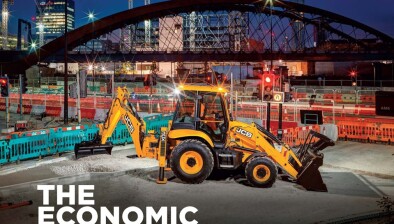Plant-hire sector make plea to Chancellor ahead of mini-budget

CPA chief executive Kevin Minton
Ahead of the emergency mini-budget due to take place this Friday 23rd September 2022, the Construction Plant-hire Association (CPA) has written to new Chancellor Kwasi Kwarteng to urge the Treasury to work with the construction plant-hire sector to address concerns and help build and secure the industry’s economic recovery.
The letter to Mr Kwarteng states: “We welcome the Treasury’s renewed focus and ambition to grow the UK economy in what continue to be difficult times for our sector and the wider economy. The recent announcement around the energy price cap for business is a good start, but we now urge the Treasury to provide clarity and further details on how this will affect businesses, as soon as possible.
“If the plant-hire sector and the wider construction industry is to help drive growth in the coming months, it is vital that our members can plan accordingly on what the government’s plans mean and how they will apply. Well publicised issues and cost pressures within the construction industry, alongside the threat of inflation and weak economic growth are the latest issues to affect our members in what has been a challenging two years.”
The CPA is the largest trade association for the plant-hire sector in the UK, representing over 1,700 companies who are responsible for 85% of the construction plant used in the UK.
CPA chief executive Kevin Minton urges Mr Kwarteng to commit to the following actions:
- The extension to the energy price cap after six months for those sectors most vulnerable to rising prices, must include the construction industry. With limited profit margins and increasing price pressures being placed on the sector, we urge the government to support construction further into 2023.
- Following the recent Treasury consultation on reforms of capital allowances, we urge the Treasury to include temporarily keeping the Super Deduction Allowance (SDA) until the economy improves sufficiently. This will provide a degree of consistency for businesses.
- Any potential successor to the SDA must include the construction plant-hire industry. This is vital if our members are able to invest in new, cleaner, greener technology that improves air quality and lowers emissions, and for the sector to fulfil its potential for growth.
- The annual investment allowance (AIA) should be set at a permanent level of £1.25m, moving away from its current temporary limit of £1m.
- Future capital allowances should be flexible and adjusted in line with rising inflation.
- Any reforms to the UK’s capital allowances should reflect the business cycle and move away from short term extensions to existing allowances.
In the letter to Mr Kwarteng, Kevin Minton states: “The last two years have been undoubtedly a testing time for the UK’s business community, with further testing times ahead. The Treasury has played a vital and welcome role in supporting companies both during and after the pandemic. This should be applauded and welcomed. We are now in a very different economic cycle, with weaker than predicted growth, rising interest rates, the well documented cost-of-living problems affecting the wider economy and growing inflationary pressures.”
















